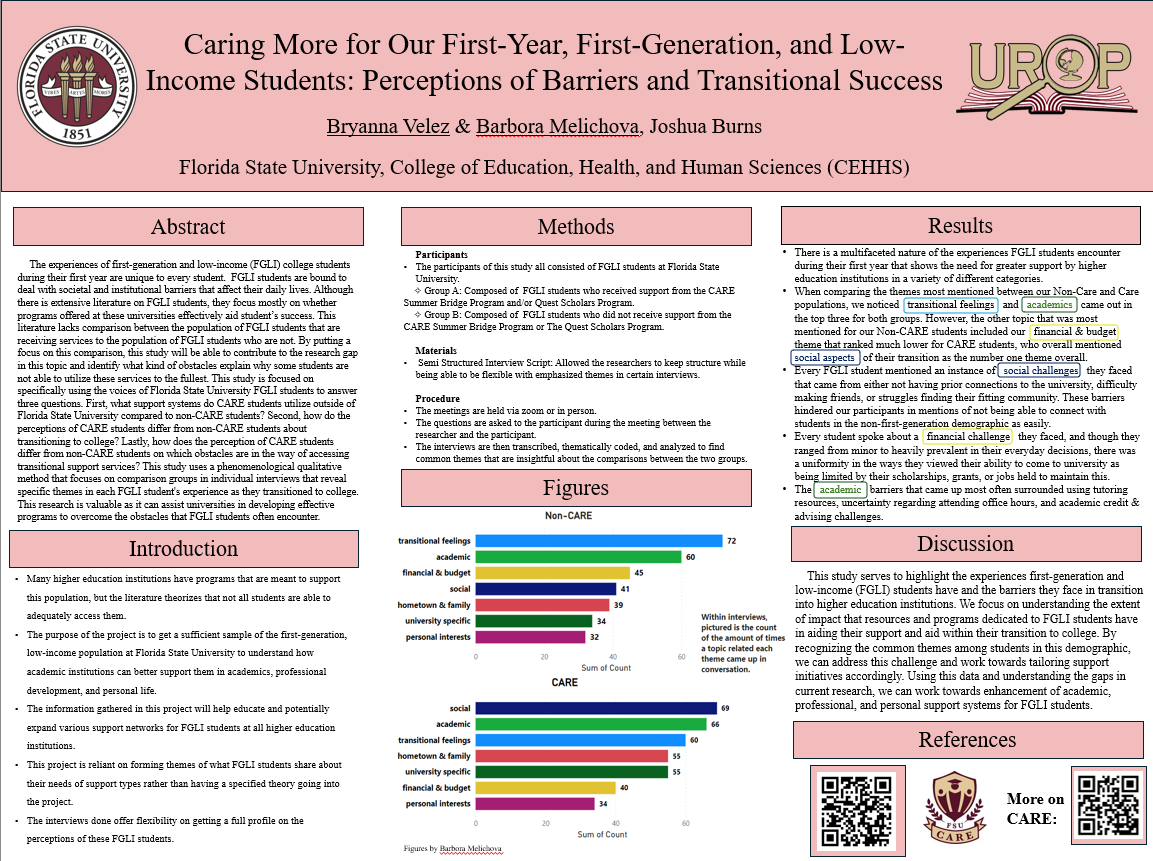Research Symposium
24th annual Undergraduate Research Symposium, April 3, 2024
Barbora Melichova Poster Session 1: 9:30 am - 10:30 am /282

BIO
I am working towards a dual degree in Management Information Systems and Finance. The research I have been involved in surrounds understanding resource accessibility at FSU for First Generation/Low Income students.
Caring More for Our First-Year, First-Generation, and Low-Income Students: Perceptions of Barriers and Transitional Success
Authors: Barbora Melichova, Joshua BurnsStudent Major: Management Information Systems and Finance
Mentor: Joshua Burns
Mentor's Department: Higher Education Mentor's College: College of Education, Health and Human Sciences (CEHHS) Co-Presenters: Bryanna Velez
Abstract
The experiences of first-generation and low-income (FGLI) college students during their first year are unique to every student. FGLI students are bound to deal with societal and institutional barriers that affect their daily lives. Although there is extensive literature on FGLI students, they focus mostly on whether programs offered at these universities effectively aid student’s success. This literature lacks comparison between the population of FGLI students that are receiving services to the population of FGLI students who are not. By putting a focus on this comparison, this study will be able to contribute to the research gap in this topic and identify what kind of obstacles explain why some students are not able to utilize these services to the fullest. This study is focused on specifically using the voices of Florida State University FGLI students to answer three questions. First, what support systems do CARE students utilize outside of Florida State University compared to non-CARE students? Second, how do the perceptions of CARE students differ from non-CARE students about transitioning to college? Lastly, how does the perception of CARE students differ from non-CARE students on which obstacles are in the way of accessing transitional support services? This study uses a phenomenological qualitative method that focuses on comparison groups in individual interviews that reveal specific themes in each FGLI student's experience as they transitioned to college. This research is valuable as it can assist universities in developing effective programs to overcome the obstacles that FGLI students often encounter.
Keywords: First Generation, Resources, Student Success

